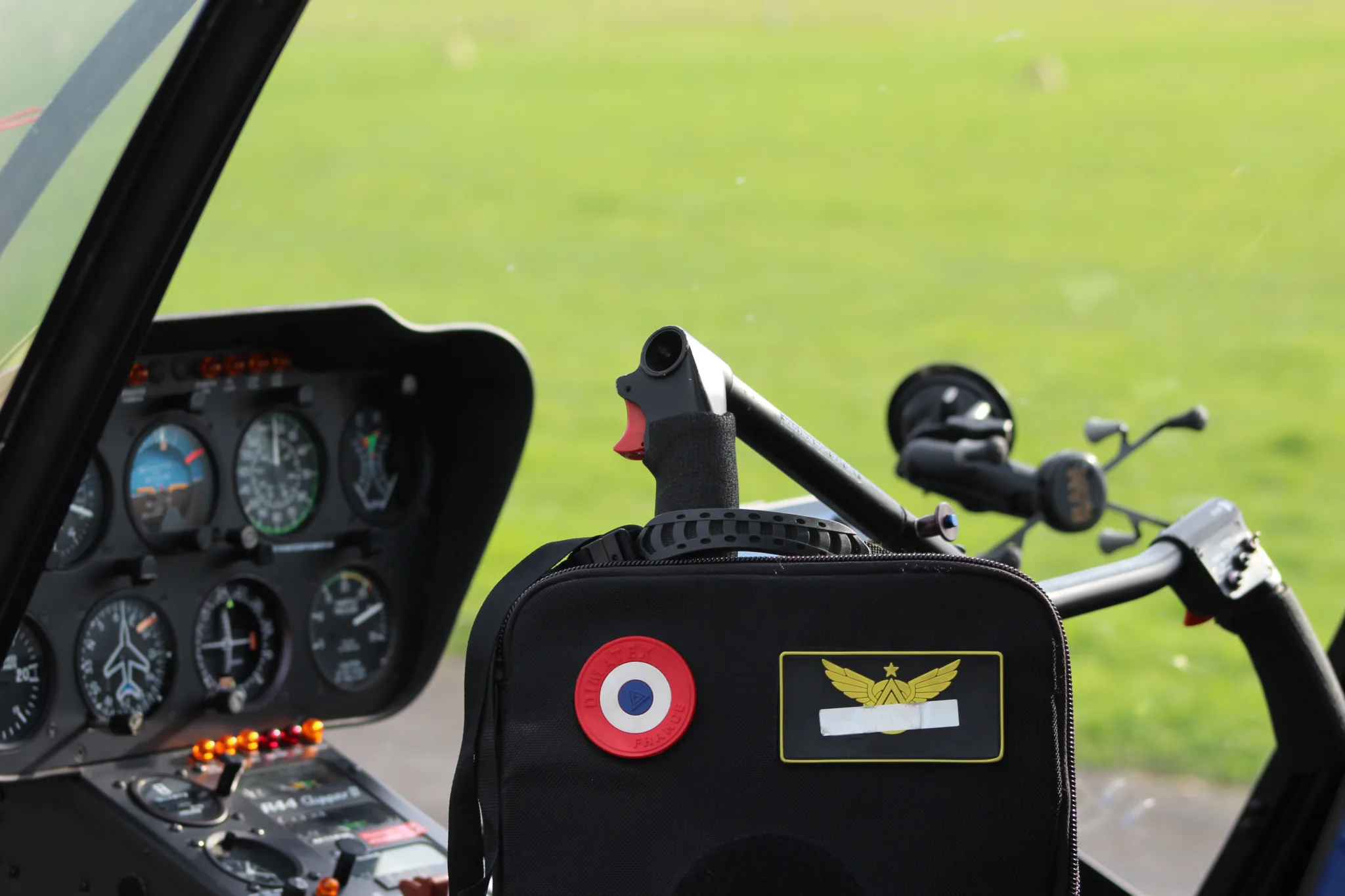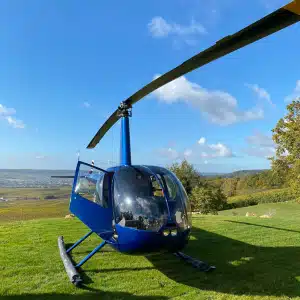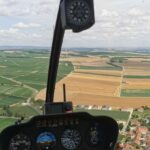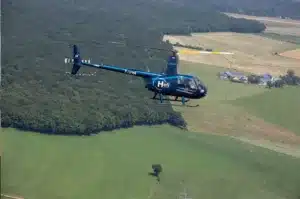
PPL(H) and CPL(H) training preparation: The keys to success
Introduction
If you aspire to take the controls of a helicopter, you’re probably already aware that the Private Helicopter Pilot Licence, PPL(H), and the Commercial Helicopter Pilot Licence, CPL(H), are crucial steps towards realising your aviation dreams. More than just certifications, they are a reflection of your skills, dedication and ability to fly safely.
The PPL(H) licence is the gateway to the world of helicopter flying, allowing holders to fly as pilot-in-command, but without financial reward. It’s an ideal choice for those looking to fly for pleasure or to undertake unique trips with family and friends.
On the other hand, the CPL(H) is essential for those aiming to turn their passion into a career, opening up opportunities in a variety of fields such as emergency medical transport, rescue operations, aerial surveillance and many other crucial missions.
The CPL(H) and PPL(H) examinations are designed to test not only your theoretical knowledge, but also your ability to react effectively in real-life situations.
That’s why solid preparation is absolutely essential. It’s not just about memorising facts and figures; it’s about developing an intuitive understanding of the mechanics of flight, strengthening your judgement in flight and cultivating a proactive attitude to aviation safety. Every hour spent studying, every flight simulation and every moment spent thinking about possible scenarios are valuable investments in your future as a pilot.
As you read through this article, you’ll discover proven strategies, practical advice and invaluable resources to guide you as you prepare for PPL(H) and CPL(H) training.
Whether you’re an enthusiastic novice or an aspiring pilot looking to hone your skills, you’ll find here the keys to unlocking your potential and propelling you towards success.

Understanding the requirements of the PPL(H)
Embarking on the path to obtaining your Private Helicopter Pilot Licence (PPL(H)) is an exhilarating adventure, rich in learning and discovery. However, before you can take to the skies, it’s essential that you have a clear understanding of the requirements and steps involved in successfully completing the training. Here’s a detailed guide to help you navigate the process.
The prerequisites for starting training
First of all, it’s important to make sure that you meet the eligibility criteria for PPL(H) training. Candidates must generally :
Age
Be at least 17 years old.
Certificate
Posséder un certificat médical de classe 2 délivré par un médecin agréé par l’aviation civile.
FCL.055
Have a sufficient command of English to communicate effectively during the flight.
Detailed PPL(H) Training Programme
PPL(H) training has two main components: theory and practice.
Theoretical training: Candidates must follow a syllabus covering subjects such as navigation, meteorology, principles of flight, operational procedures, aviation regulations and communications. This phase culminates in a written examination.
Practical training: This part focuses on developing piloting skills. Students learn how to manoeuvre the helicopter, carry out take-offs and landings, navigate in flight and handle various emergency situations.
Tips for preparing effectively for the PPL(H) and CPL(H) exams
Passing your PPL(H) and CPL(H) exams requires serious commitment and meticulous preparation.
Here are a few tips to optimise your learning:
Use training resources: Take the time to study regularly and familiarise yourself with aviation jargon. Use a variety of resources, such as manuals, educational videos and flight simulators.
Plan your Flying Sessions: Try to fly regularly to maintain and develop your skills.
Learn from your mistakes: Don’t hesitate to ask questions and learn from your mistakes. Every flight is a learning opportunity.
Stay healthy: Make sure you stay in good physical and mental shape. Flying requires acute concentration and good physical condition.
Join a Community: Connect with other student pilots and aviation professionals. Learning from the experiences of others can be invaluable.
By following this advice and investing fully in your training, you’ll be well on your way to passing your PPL(H) and CPL(H) and enjoying the joys and freedoms that helicopter flying has to offer.

Progressing towards the CPL(H) licence
Progression to the Commercial Helicopter Pilot Licence (CPL(H)) is a crucial step for those who want to make flying their career. This licence opens the door to a wide range of professional opportunities, from passenger and cargo transport to rescue operations and much more. In this section, we’ll explore the essential aspects you need to know to progress towards the CPL(H) licence, the additional skills required and share tips for successful preparation.
What you need to know
Before you begin your progress towards the CPL(H), it is essential to understand the requirements and expectations associated with this licence. The CPL(H) requires a minimum of 150 flying hours, part of which must be devoted to instrument flight training (IFR) and night flying. In addition, solid theoretical training is essential to pass the written examination, which covers a variety of subjects such as meteorology, navigation, aviation regulations and flight mechanics.
Additional skills required for CPL(H)
The CPL(H) requires a superior command of various flight techniques, including complex manoeuvres and emergency procedures.
You need to be able to navigate accurately over long distances, using both instruments and visual cues.
A thorough understanding of helicopter systems is essential for safe operation.
CPL(H) introduces the concept of Crew Resource Management (CRM), which involves effective communication and collaborative decision-making within the crew.
Tips for successful preparation for the PPL(H) and CPL(H) exams
Plan Your Training: Draw up a clear training plan, determining in advance when and how you are going to accumulate the necessary flying hours.
Invest in theoretical training: make sure you understand the theory before you put it into practice. Use a variety of resources and don’t hesitate to ask for help if you need it.
Practise regularly: Regularity is key in flight training. Make sure you fly frequently to maintain and improve your skills.
Revisit the Basic Manoeuvres: Before embarking on advanced manoeuvres, make sure you have mastered the basics.
Prepare for the exam: The PPL(H) and CPL(H) exams are demanding and cover a wide range of subjects. Start revising well in advance and use mock exams to test your knowledge.
Look for Diverse Flying Opportunities: Try flying in different weather conditions to gain experience and confidence.
By following these tips and committing fully to your training, you’ll be well prepared to meet the challenges of the CPL(H) and take another step towards a successful career as a commercial helicopter pilot.
Exam preparation resources and strategies
Passing the exams for the PPL(H) private helicopter pilot licence and the CPL(H) commercial helicopter pilot licence requires meticulous preparation and the use of appropriate resources. This part of the article focuses on the essential resources to be mobilised and the strategies for ensuring optimum preparation.
Essential preparation resources
Recommended manuals
“Principles of Helicopter Flight” by W.J. Wagtendonk and “Helicopter Pilot’s Manual” by Norman Bailey are recommended.
These books cover in detail the principles of flight, piloting techniques and flight regulations.
Online tools
Mobile applications and online platforms dedicated to preparing for aviation exams.
“Pilot Exam” offer MCQs similar to the official exam, allowing you to practise.
Trainers
Keep in touch with your instructors and trainers.
They are a valuable source of advice and can help you identify areas requiring particular attention.
Exam preparation strategies and techniques
Planning and organisation: Draw up a revision schedule and organise your resources methodically. Set clear objectives for each revision session.
Active revision: Adopt active revision methods, such as creating revision sheets, making summaries and practising exercises and quizzes.
Mock exams: Take mock exams under real conditions to familiarise yourself with the format of the test and manage stress.
Proven Revision Methods for these Licences
Divide the content to be revised into specific themes and focus on one theme at a time to ensure a thorough understanding.
Use the spaced repetition technique to reinforce long-term memory. This method involves revising information at regular intervals, gradually increasing the time between each revision.
If possible, form study groups with other candidates. Exchanging knowledge and solving problems together can enrich your preparation.
Incorporate breaks and moments of relaxation into your revision routine. This helps to maintain a high level of concentration and prevent exhaustion.
By following these recommendations and taking advantage of the appropriate resources and strategies, you will maximise your chances of passing the PPL(H) and CPL(H) exams, thus taking a decisive step towards your career as a helicopter pilot.
Our advice for success
Passing your helicopter pilot licence exams, whether PPL(H) or CPL(H), requires more than just theoretical and practical knowledge. It’s also essential to pay attention to your physical and mental well-being to maximise your performance on the big day. Here’s our key advice to put the odds in your favour.
Common errors
The 3 most common mistakes are :
- Lack of preparation
- Neglecting mock exams
- Overexerting yourself

Don’t underestimate the amount of knowledge you need to acquire. Start your preparation well in advance and make sure you cover the whole syllabus. Mock exams are crucial for familiarising yourself with the exam format and managing stress. Don’t neglect this stage of your preparation. Avoid overexerting yourself in the days leading up to the exam. It’s important to stay fresh and alert so that you’re in full possession of your abilities.
The importance of physical and mental well-being
Eat a balanced diet rich in fruit, vegetables and proteins. Avoid excess caffeine and overly fatty or sugary foods, which can affect your concentration.
Make sure you get plenty of sleep, especially the night before the exam. Adequate, restorative sleep is essential for maintaining sustained attention and a good memory.
Make regular physical activity part of your routine. Exercise helps reduce stress, improves sleep quality and boosts cognitive abilities.
Practise stress management techniques such as meditation, deep breathing or yoga. Learning to stay calm under pressure is a valuable skill on exam day.
Conclusion
Embarking on the adventure of training, then taking the PPL(H) and CPL(H) exams, is a demanding but infinitely rewarding process. Whether you aspire to become a professional helicopter pilot or just want to fly for pleasure, solid preparation is a must. A thorough understanding of the requirements of the PPL(H), a successful transition to the CPL(H), and a mastery of preparation resources and strategies are all crucial steps that you should take seriously.
Helicopter licences, although they open the door to exciting careers and unforgettable moments in the air, require total commitment and meticulous preparation. Theoretical knowledge, practical skills and physical and mental well-being are the pillars on which you must build your success. Mistakes are human, but knowing what they are and avoiding them is an integral part of your preparation.
By choosing to embark on a training programme and pass the PPL(H) and CPL(H) exams, you are choosing the path of excellence and rigour. The advice and guidance shared in this article are there to guide you, inspire you and motivate you to give the best of yourself.
Passing these demanding exams is within your grasp. With the right preparation, effective stress management and sustained attention to your well-being, you have everything you need to succeed and thrive in the fascinating world of helicopter piloting. Rest assured that every effort you make along the way will be another step towards achieving your goals and fulfilling your aviation dreams. Have a safe flight and pass your PPL(H) and CPL(H) exams!
Are you interested in PPL(H) and CPL(H) training? Then contact us!
Our team will be delighted to give you more information about our training courses to become a private or commercial pilot in Europe and abroad, and to show you all our introductory flying courses in Reims and Luxembourg.
Nos offres de formations
DOUBLE CPL(H) LICENCE
Becoming a pilot in Europe and Canada
CPL(H) LICENCE
Become a pilot in Europe only
To become a pilot for personal pleasure
CONVERSION TO EASA
To convert your licence and fly in Europe
CEFA – Centre Européen de Formation Aéronautique
- Aérodrome de Reims-Prunay, 51360 Prunay
- [email protected]
- 07 49 94 35 32
Our office in Luxembourg
- 13-15, Rue de l'industrie L-8069 Bertrange Luxembourg
- [email protected]
- +352 2630761






No comment yet, add your voice below!